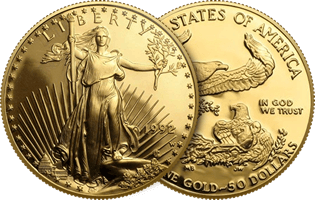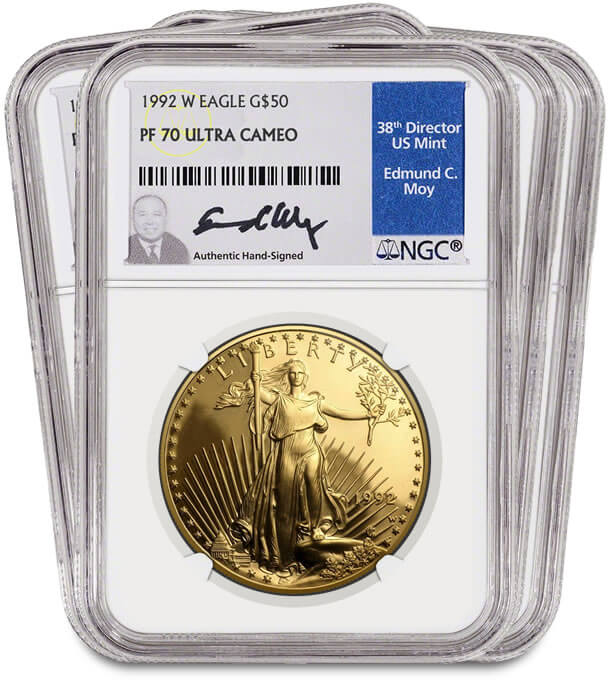- Gold $0.00 $0.00
- Silver $0.00 $0.00
- Platinum $0.00 $0.00
- Palladium $0.00 $0.00


Gold American Eagle Proof 70 Coins
The Modern Era Group
1992 - 2000




The yearly price increase for the sets in the Modern Era group has been superior, averaging between 8% and 16% each since 2010, above returns in the stock market or even the gold bullion market, making each set an excellent medium- or long-term investment.
When the modern U.S. Mint began making gold coins in 1986, the first major release was the Gold American Eagle. Each year, the mint creates a standard "Business Strike" version of the coin, made for general bullion circulation, and a much smaller number of special issue "Proof" coins, specifically for investors and collectors.
Only a very small percentage of the proofs receives a "Proof 70" certification, a perfect score which establishes the rarity. The value of bullion coins floats up and down with the market price of gold, but rare coins, such as Gold Eagle Proof 70s, don’t trade on an index and are therefore much less volatile. Instead, their value is determined by supply and investor demand. These coins are also known as Investment Grade Coins.
For the first six years, the Gold Eagle coins featured Roman Numeral format dates, but starting with the Modern Era Group in 1992, the coins used modern-format dates. Each set during the Modern Era (1992 to 2000), included four coins 1/10oz ($5 face value), 1/4oz ($10), 1/2oz ($25), and 1oz ($50).
The Modern Era Group of Gold American Eagle Proofs includes some of the rarest sets in the entire Gold Eagle Series, including the 1993 4-Coin Set, which is the rarest of all, with only 466 sets in existence in perfect Proof 70 condition. In fact, due to the vast difference between the supply and demand, this set is only available to clients as part of a full Date Run.
Total Increase for Gold Eagle Modern Era Group: 152%


The Modern Era Gold American Eagle Date Run
The Modern Gold American Eagle Proof 70 Date Run includes one of each of every denomination (1/10oz, 1/4oz, 1/2oz and 1oz) of Gold Eagle minted from 1992 to 2000 – a total of 36 coins and 16.65 ounces of pure gold. Every coin is graded by NGC in Proof 70 Ultra Cameo condition — the highest grade available.
